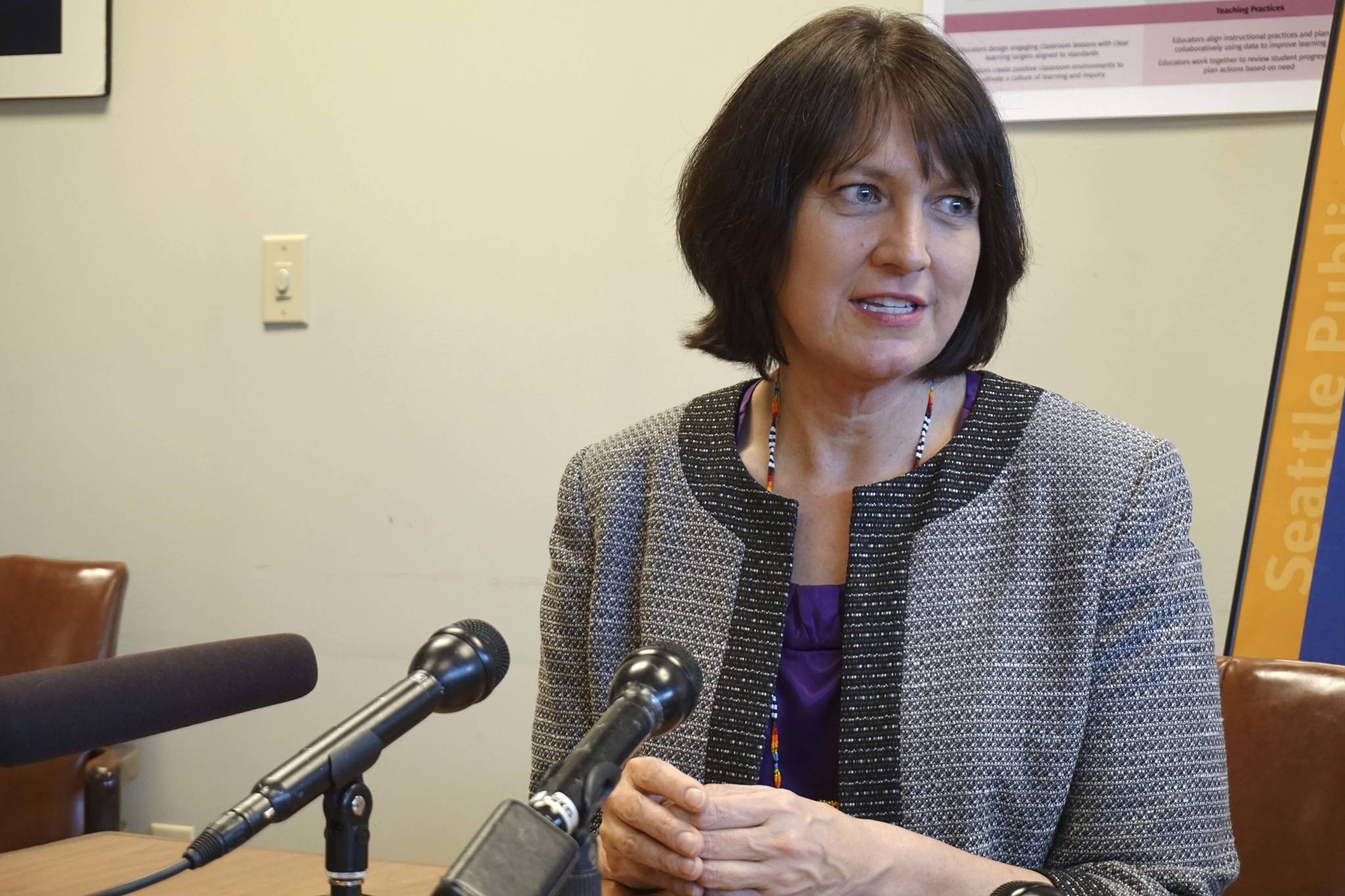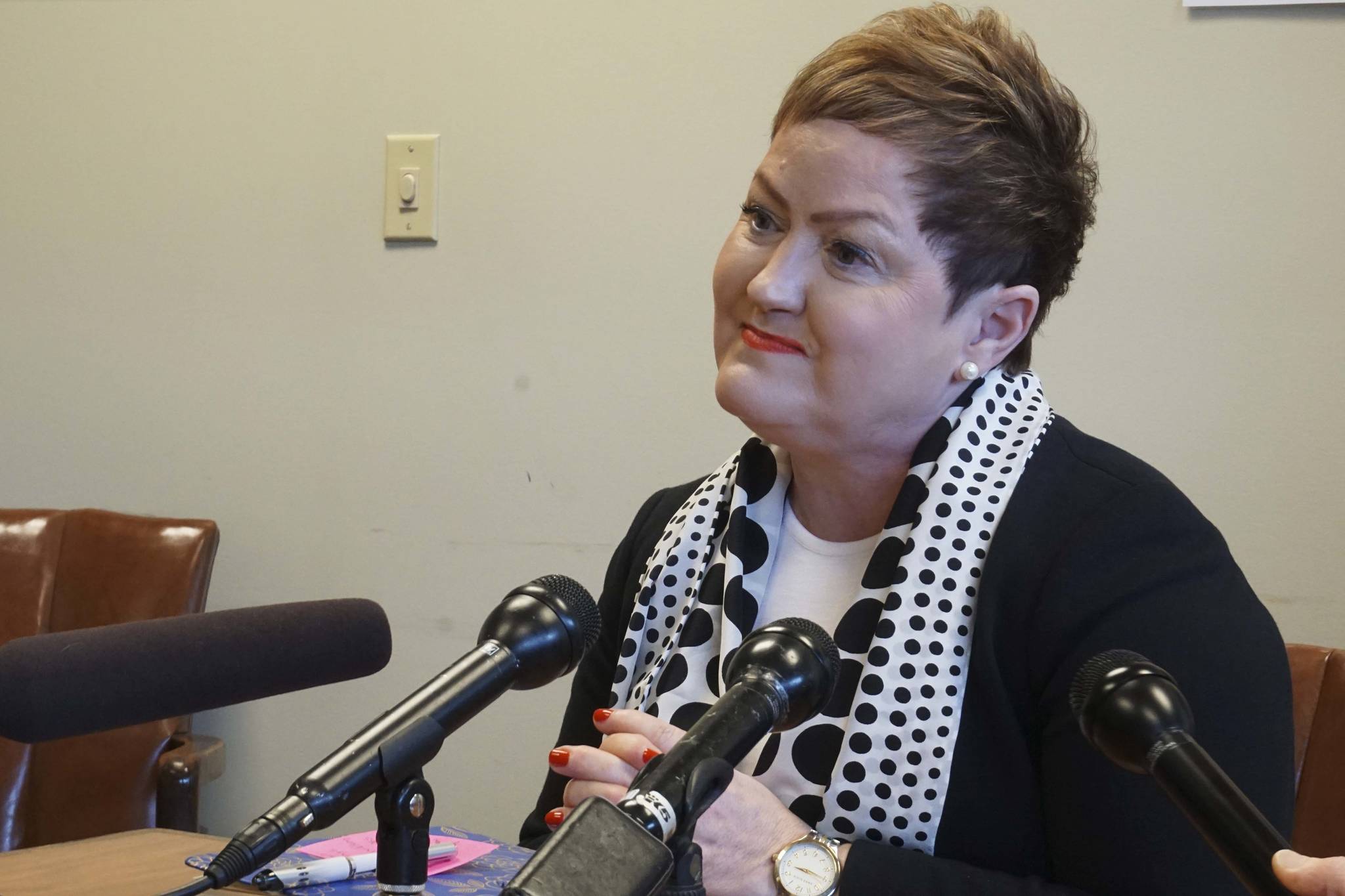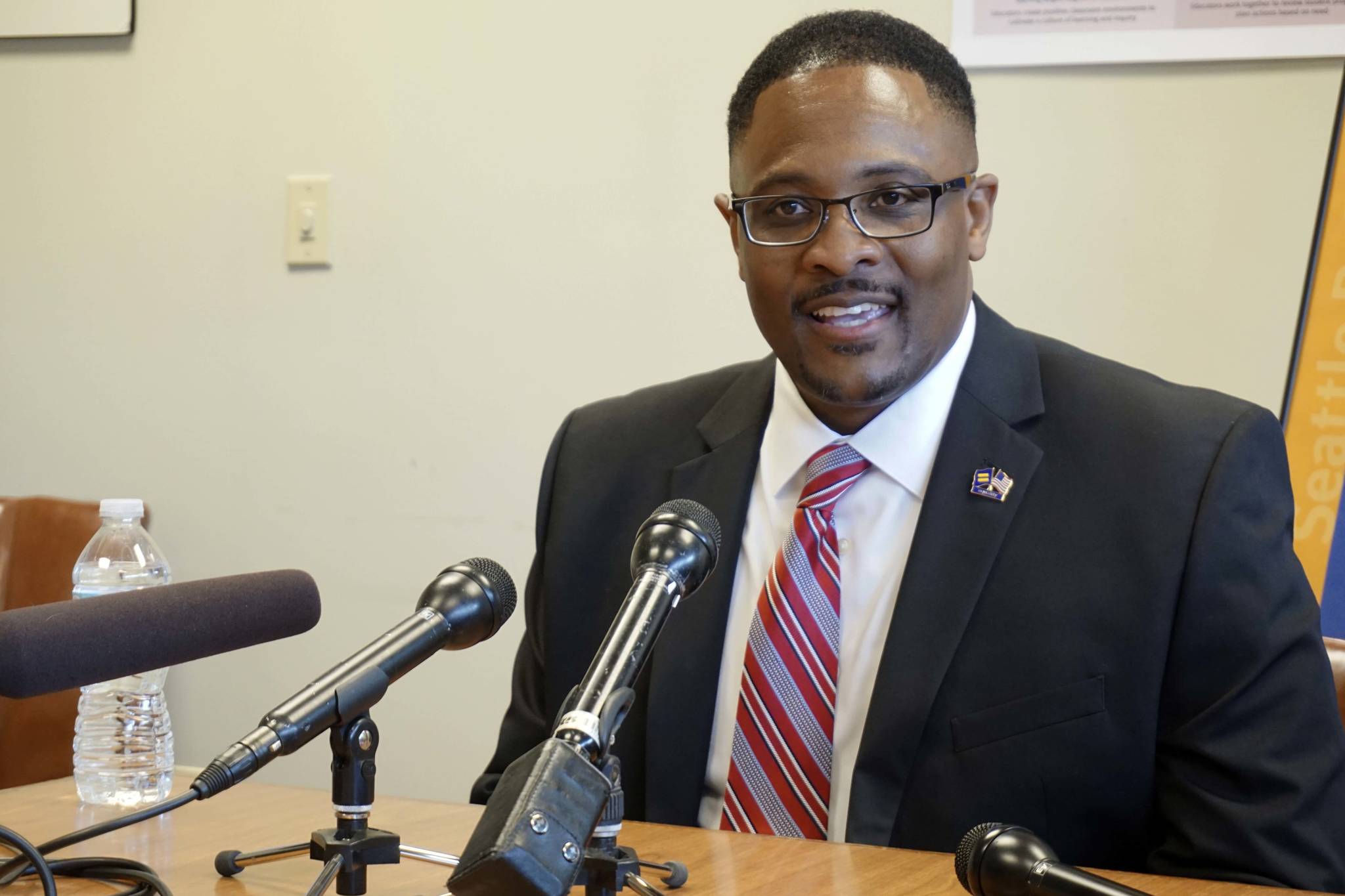In recent months, the Seattle School Board has faced criticism from many parents and educators who say that the search for a new superintendent has lacked transparency and community engagement. The critique comes on the heels of growing wealth inequality and a steadily rising student homeless population in a district with one of the largest opportunity gaps in the country. As current superintendent Dr. Larry Nyland’s contract draws to a close, his replacement is charged with addressing student safety in an age of school shootings, and the slow but steady rollout of an ethnic studies curriculum in a school district where students of color form the majority. Despite the ostensibly tall order, the three finalists—selected from 63 applicants—say that they are up for the challenge.
The superintendent finalists came face-to-face with the community for the first and only time at Thursday evening’s public forum from 5–8:15 p.m. in the John Stanford Center’s auditorium. Around 150 people filled the room to hear Denise Juneau, Andre Spencer, and Jeanice Swift conduct presentations and answer the same questions submitted by community members through email. The town hall was also broadcast live (and archived) on the District website and on SPSTV/Channel 26.
The three finalists boast expansive resumes and accolades, and all have experience helming school districts in other states. Spencer holds a Master of Science and Doctor of Education degrees, and has been a superintendent of Harrison School District Two in Colorado Springs, Colo. for more than five years. Swift, who has a PhD in Educational Leadership, has been the Superintendent of Schools in the Ann Arbor Public Schools in Michigan for nearly five years. Juneau has a Master’s in Education and a Juris Doctorate, and served two terms as the former Montana Superintendent of Public Instruction. Her tenure began in 2008, marking first time in the United States that an American Indian woman was elected to an executive statewide office.
Many of the submitted questions revolved around some of the district’s most pressing issues, such as school equity, funding, and school improvements.
Swift was the first to present Thursday evening, and fielded the question, “How will you take the voice of families and students from our most underserved communities into the decision making processes?” Swift responded that hearing the perspectives of others is critical to moving forward together. She also recommended the use of online engagement tools and visiting public housing, which she said she has done in the past.“We can’t always say the door is open, you come on in. Because not everyone’s able to do that,” Swift said.
When Juneau was asked the question during her segment, she talked about an initiative she rolled out called Schools of Promise, in which she worked with communities with generational, concentrated poverty by talking with them about opportunity gaps and asking the communities how their culture and context could be incorporated into the school district to better serve their students. Spencer was the final candidate to answer questions on Thursday. In addressing opportunity gaps, he suggested encouraging people in different professions to become mentors to students. “I think ways in which you begin to ensure that there’s a distribution of resources throughout the spectrum, is in engaging … everyone in the equation.”
When asked how they would incorporate student voices in district decisions, Swift responded that she regularly meets with student representatives at Ann Arbor schools. “Students have a lot to say and I need to listen,” Swift said.
The future superintendent is also entering the district during a projected budget shortfall for the upcoming school year. One questioner feared that opportunity gaps between black and white students was exacerbated by disparities in fundraising between schools. Swift shared examples of how she dealt with similar deficits by tapping into additional revenue streams, like selling cell towers. In the plan to close the opportunity gap, Juneau referenced the lessons that she learned from a Marin County, Calif. superintendent having similar wealth disparities in their school. In Marin County, all of the schools created a foundation where funding went into one pot and was equitably distributed. “So if it can happen in other places, although she said it was not easy to get people on board with that idea … I think that could be something we could talk about in this area as well,” Juneau said. Spencer mentioned grants that his Colorado district acquired to offset costs for students’ books and staff salaries.
Thursday evening’s meeting ended with the moderator asking attendees to provide feedback on the finalists through online surveys that closed that evening. “We take this extraordinary responsibility very very seriously. We need to hear from you,” Seattle School Board President Leslie Harris said at the conclusion of the discussion.
However, many parents and educators complained that Thursday’s town hall came too late. Applications for the new superintendent closed on Feb. 28, and were followed by two meetings last week in which labor and community organizations provided comments after the School Board interviewed semi-finalists. Community members in attendance signed non-disclosure agreements to ensure that the discussions were private.
In January, Ray and Associates, Inc., the firm chosen to conduct the superintendent search, released a survey that asked community members to choose desirable leadership qualities in the forthcoming superintendent. The survey was available in English and seven other languages predominately spoken in the district, but out of the 2100 responses, 70 percent of the respondents were white and only four people needed translation services.
Some parents expressed concern about the survey’s lack of representation of communities of color considering the district’s minority makeup. Earlier this week, Erin Okuno, an SPS parent and Executive Director of Southeast Seattle Education Coalition, told Seattle Weekly she was concerned that the lack of transparency in the search process could make it difficult for the new superintendent to gain the community’s trust. During a Thursday afternoon discussion with reporters, finalists said that they would engage with the community through face-to-face meetings.
The search for Nyland’s replacement started after the School Board voted in 2016 not to renew his contract, which ends Jun. 30. He stepped in as the interim superintendent in July 2014, when then Superintendent José Banda left to join Sacramento City Unified School District. The School Board voted to permanently hire Nyland later that year. A forthcoming superintendent will be the district’s seventh leader in two decades.
The School Board will vote to enter negotiations with the top candidate on Wednesday, April 4 at 4:15 p.m. Seattle Public Schools spokesperson Kim Schmanke told reporters Thursday afternoon that the School Board anticipates a final vote on the contract on April 25, and the new superintendent is expected to begin their role on July 1.
mhellmann@seattleweekly.com










